Shawn Inmon's Blog, page 8
October 5, 2012
Isn't it ironic?
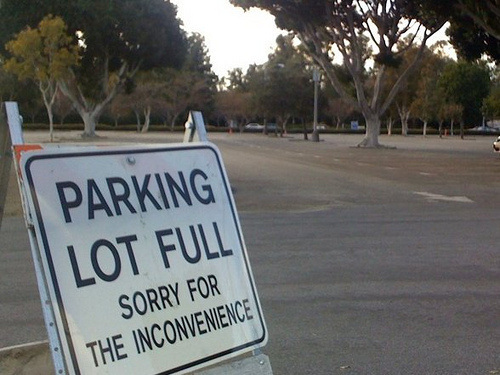 Since I don't want my meaning to be lost or misconstrued, I'll start with a caveat: I don't dislike Alanis Morissette. She's not my favorite artist of the 90's, but I enjoyed Jagged Little Pill, and I admire the way she was able to turn her bitterness over failed relationships into hit songs like You Oughta Know.
Since I don't want my meaning to be lost or misconstrued, I'll start with a caveat: I don't dislike Alanis Morissette. She's not my favorite artist of the 90's, but I enjoyed Jagged Little Pill, and I admire the way she was able to turn her bitterness over failed relationships into hit songs like You Oughta Know. But, her song Ironic? To me, the only "ironic" thing about that song is that it doesn't seem to understand what irony is. Let's look at some of the lyrics of the song:
It's a black fly in your Chardonnay
It's a death row pardon two minutes two late
It's like rain on your wedding day
A traffic jam when you're already late
A no-smoking sign on your cigarette break
I'm willing to say that these are all unfortunate occurrences but I don't see the irony. "Irony" means using words to convey a meaning that is the opposite of its literal meaning. So, an insect in your wine is unpalatable, but not ironic. I suppose rain on your wedding day might be ironic if you were a meteorologist, but if not, it's just a bunch of damp tule.
Instead, try this on for real irony:
I misspelled my proofreader's name in the acknowledgement section of Feels Like the First Time. See, his job was to make sure I didn't misspell any of the 66,000 words in the book, and he did so admirably. He caught dozens of my mistakes, but I was left to my own devices for those few words, and instead of crediting "J.K. Kelley" as my proofreader extraordinaire, I listed him as "J.K. Kelly."
So, J.K., mea culpa. Next book, I hope we've learned our lesson: I should never be left unsupervised near a keyboard.
Meanwhile, here's the entry form to win two free signed copies of Feels Like the First Time, now with corrected Acknowledgements!
a Rafflecopter giveaway
Published on October 05, 2012 19:15
October 4, 2012
Books vs Kindles
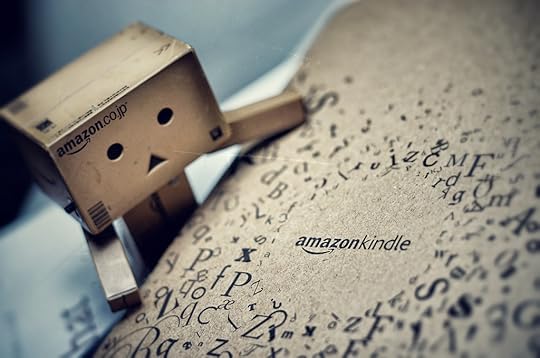 "I'm a purist. I love the smell and feel of of a book. I have to have the tactile sensation of turning the pages. I'll never get one of those Kindle thingamabobs."
"I'm a purist. I love the smell and feel of of a book. I have to have the tactile sensation of turning the pages. I'll never get one of those Kindle thingamabobs."I think that pretty well sums up most of the arguments against reading on a Kindle, or a Nook, or a Sony eReader, or an iPad. I have a confession... I was one of those people a year ago.
I've been a book lover for as long as I can remember. I have a clear memory of climbing up to the kitchen table where my Mom's old manual typewriter was and copying Dr. Seuss's Green Eggs and Ham word for word. I was very proud, but Mom gave me my first lesson on plagiarism. My first rejection letter, I guess.
In the 80s, I decided to collect every Robert A. Heinlein book ever published. I was stymied by a lack of funds and the fact that eBay hadn't been invented yet, but I gave it a good try. I still have a few of those favorite books sitting on the shelf in my living room.
I will always have books in my life... the paper kind, not just the electronic kind. There is something essentially pure in sitting in a comfortable chair with an old favorite book and something hot to drink. The distinct smell and yellowing pages of an old book add to the experience.
But then, there's the other side of things. A year ago I was anxiously waiting for Stephen Kings 11/22/63 (a fictionalized take on the Kennedy assassination) to be released. I had just taken the plunge into the e-reader market by buying a Kindle Fire. 11/22/63 was the first e-book I bought. Because I tend to read a lot in bed, flat on my back, one huge advantage immediately became clear. It didn't matter that the book was over 800 pages, my Kindle was as lightweight as the latest Katy Perry song.
And there's this... I'm travelling on business this week. I finished the book I was reading the night before I left, and I wasn't sure which book I wanted to start next, but I knew I would need something to fill the hours on the road. Pre-Kindle, I would have either had to just guess what I would be in the mood for, or bring an extra suitcase for my books. Instead, I brought several hundred books with me on my Kindle.
That doesn't even begin to take into account that before I roll over and turn out the light, I can check my email and Facebook, all without putting my Fire down.
The first few weeks that Feels Like the First Time was out, I sold a few more e-book copies than I did the paperback, but it wasn't a significant amount. I thought that maybe what I'd been hearing about the dominance of e-book sales was wrong. After those first few weeks, and after friends and family that wanted a copy to hold in their hands had already purchased, things changed. Over the last two weeks, as more and more people who don't know me have been buying the book, Kindle sales have been beating paperback sales by ten to one.
I guess I am no longer a purist. I will always keep and love my favorite books. But, I will never again be without a Kindle if I can help it. How about you? Are you still holding on to your paperbacks and hardbacks, or have you made the switch?
Published on October 04, 2012 11:02
October 3, 2012
Win two free signed copies of Feels Like the First Time
Click to set custom HTML a Rafflecopter giveaway
Published on October 03, 2012 20:02
Fill the Shelves
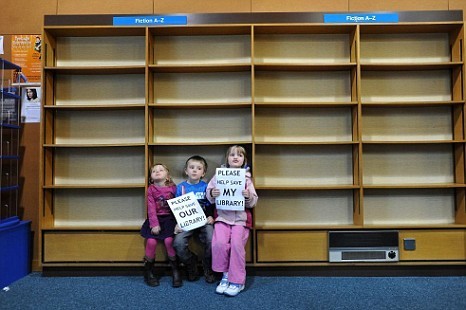 I was born in Riffe Washington, a town so small and lovely that it didn't survive the 1960s. Riffe didn't have a library, of course, but that didn't mean that I didn't have access to free books. Once a month (or maybe that's just how often my mom was willing to take me) the Timberland Bookmobile came, delivering Dr. Seuss, picture books with dinosaurs and my first chapter books.
I was born in Riffe Washington, a town so small and lovely that it didn't survive the 1960s. Riffe didn't have a library, of course, but that didn't mean that I didn't have access to free books. Once a month (or maybe that's just how often my mom was willing to take me) the Timberland Bookmobile came, delivering Dr. Seuss, picture books with dinosaurs and my first chapter books.Once I started school, I had access to the library at Mossyrock Elementary, which seemed like an embarrassment of riches to my wide eyes. In third grade, I discovered Jim Kjelgaard stories like Big Red, Desert Dog, and Snow Dog , tales of incalculable danger and adventure that became my first reading obsessions.
Those books gave way to Jack London, endless sports stories, and eventually a science fiction addiction that became life-long. I honestly don't know what I would have done without having a library there to foster my early love of reading. Watch more television, I guess.
The reason I'm writing about this today is that there are libraries whose shelves are almost as bare as the picture I posted above. In these difficult economic times, funding to the arts and things like library books are often the first things to fall by the wayside. And today, we can do something about it.
There is an organization called Fill the Shelves (FilltheShelves.org) that connects people with libraries that desperately need books. Although it just started in the last week, they've already had incredible success, filling an elementary school library in Jonesboro Louisiana with 221 books. Here's an excerpt from the librarian there:
Southside Elementary School was bombarded with boxes and boxes of fabulous books today. Our students were very excited and could not contain themselves as I opened boxes and showed them each book. The ‘oohs and aahs’ were heard all around as excitement filled the air. One student wanted to know if it was my birthday. LOL! I then explained how wonderful people across the nation had so much faith in them they wanted to make sure they had plenty of great books to read! I read the notes that came from the gifters and with eyes wide, the students would repeat the state the sender was from in awe. They couldn’t believe this many people cared enough to bless them with so many books...
There are two ways you can help if you want. If you click on the link I posted above to FilltheShelves.org, you will see libraries there that have posted "wish lists" of books they would like to be able to offer their students. You can click on any of those books and you'll be taken to Amazon, where it will be very easy for you to send whatever book you choose winging its way to a library that needs it.
Also, if you know of a library in need of books, please contact me with that information, and I will connect that librarian with Fill the Shelves.
I've chosen to do something good for the world each time I reach various milestones with my writing. Today, my Facebook Writer Page reached 300 "Likes" and that seems like a good milestone to celebrate, so I sent a copy of We the Children by Andrew Clements to the Downsville Charter School. Thank you to everyone who has helped spread the word about this blog and my facebook page.
If you'd like to give to a library closer to home, then lets find and identify some libraries in Washington that need the help and connect them with Fill the Shelves!
Published on October 03, 2012 09:30
October 1, 2012
Burn these books
 The Adventures of Huckleberry Finn Mark Twain
The Adventures of Huckleberry Finn Mark TwainFahrenheit 451 Ray Bradbury
To Kill a Mockingbird Harper Lee
In Cold Blood Truman Capote
The Grapes of Wrath John Steinbeck
Aside from the fact that these are five of my most treasured reading experiences, do you know what these books all have in common? At one time or another, they have shown up on a Banned Book list. Let that sink in for a moment.
At one moment in time, someone, somewhere, thought that they knew enough, or had enough moral authority, that they could tell everyone else they shouldn't read these books. Just for a fun, here are a few more:
Slaughterhouse Five Kurt Vonnegut
Lord of the Flies William Golding
A Light in the Attic Shel Silverstein
Animal Farm George Orwell
Catch 22 Joseph Heller
I can't say for sure which of these ten books impacted me the most. Probably To Kill a Mockingbird, which I think is my favorite novel of the last fifty years. Still... Fahrenheit 451. A book that challenged the way I think about things, as did Catch 22, Lord of the Flies, and Slaughterhouse Five.
What I do know for sure is that I would be a poorer human being if that "someone, somewhere" had been successful in getting a single one of these books truly banned. To me, the idea that anyone should proclaim that anyone else should be deprived of what's inside a book is ludicrous. I'd like to believe that the days of book-burning and banning are behind us, like the Jim Crow Laws but they're not.
The Harry Potter books were banned for promoting witchcraft and a belief in the supernatural. Odd... what my girls got out of those books are that friendship, caring for each other and doing the right thing even when it's not easy are the most important things. The Twilight books were banned in some places, as was The Da Vinci Code. The truth is, I didn't care for the Twilight books. I read the first one, and never bothered to read another. What I didn't feel the need to do, though, is tell anyone else they shouldn't read them.
We are in the midst of "Banned Book Week." I'd like to encourage all of us to strike a blow for intellectual freedom. Read a banned book. I provided links to the first ten above if you're interested. If you haven't read any of them, you've missed out on some great stories.
Maybe someday, someone, somewhere will want to ban something I've written. If that ever happens, I'll know I'm in the best company of my life.
Published on October 01, 2012 11:35
September 30, 2012
Summer of the Barrel
 In the second chapter of Feels Like the First Time, I wrote about an old barrel that my friend Mark Panter and I used to keep ourselves amused over the course of an entire summer. I honestly don't know how big that barrel was, but it was big enough that two good-sized teenagers could stand on it and still have room to maneuver. My step-Dad had brought this barrel home and leaned it up against the back garden shed a year or two before, and there it had sat. Whatever project he had imagined for it never materialized.
In the second chapter of Feels Like the First Time, I wrote about an old barrel that my friend Mark Panter and I used to keep ourselves amused over the course of an entire summer. I honestly don't know how big that barrel was, but it was big enough that two good-sized teenagers could stand on it and still have room to maneuver. My step-Dad had brought this barrel home and leaned it up against the back garden shed a year or two before, and there it had sat. Whatever project he had imagined for it never materialized.I don't know whatever lead Mark and I to tip that barrel over the first time. Sheer boredom would be my best guess. When we did tip it over, all the rust that had formed inside broke loose and moved around the inside, making an appealing sound. In the book I said it sounded like an Indian Rain Stick, and that's pretty close. It was that sound that led Mark and I to investigate more thoroughly. If it had tipped over quietly, that probably would have been its final resting place.
Instead, Mark and I looked at each other with raised eyebrows and in a moment of mutual understanding, we pried it loose from the grass that had grown up around it and pushed it out onto the lawn between our houses. Every revolution of the barrel resulted in a musical shoosh, shoosh, shoosh.
I don't remember which one of us had the brilliant idea to jump up on it and see if we could move it with our feet. It was probably Mark. He was always the more adventurous of the two of us. Whichever it was, we found that our tennis shoes gave us enough traction that if we stood on the very edge of the barrel, it would roll along the flat grass. As soon as we discovered that, it felt like magic had invaded our otherwise lackadaisical summer.
By the end of the day, we had devised all kinds of games to play on the barrel. The easiest was to have both of us stand on top and, using only our feet, try desperately to throw the other one to the ground by stopping, starting and changing the direction the barrel traveled. But, we also marked off a course and timed how fast we could move the barrel from one end to the other. It was like a Barrel Olympics.
If we had rolled the barrel as much as we could for a while, we tipped it up on end and used it as Home Base for a game of Werewolf. If you never played Werewolf as a kid, you missed out. It was like Hide 'n Seek on steroids, with an element of playacting thrown in for good measure. Because the barrel was metal, it would get hot during the day, and we loved to sit with our backs against its' warmth as the day cooled. Mark and I would soak up the last remaining bits of warmth and tell each other stories and lies. Lies, mostly, but all in good fun.
It makes me a little sad to realize that if I had been born in 2000 instead of 1960, I would never have had the Summer of the Barrel. Instead, Mark and I would have been playing XBox, listening to our iPods and updating our Facebook statuses all day. And... I would have had many less happy memories to look back on today.
How about you? Any special, odd things you did to occupy yourself during those Lazy Hazy Crazy Days of Summer during your youth?
Also, before I forget, the contest is still running to get one of two signed copies of Feels Like the First Time. Details below: a Rafflecopter giveaway
Published on September 30, 2012 16:12
September 26, 2012
It's a contest! Free Stuff!
I'm continuing to learn how to do new things with the website every day, Today I'm trying to learn how to run a contest...
I'm going to give away two free, signed copies of Feels Like the First Time, mailed directly to you, or whoever you'd like to receive them. It's easy and free to enter. You can do different things to enter, like sign up to receive email notifications when the blog is updated, "Like" my Facebook Writer page or leave a blog comment.
To do those things, see the handy buttons right below this post. I'm not going to mention it every day, but that box should be at the bottom of all my blog posts for the next few weeks. This contest is being handled by a cool company called Rafflecopter, so the drawing will be truly random. Thanks! a Rafflecopter giveaway
I'm going to give away two free, signed copies of Feels Like the First Time, mailed directly to you, or whoever you'd like to receive them. It's easy and free to enter. You can do different things to enter, like sign up to receive email notifications when the blog is updated, "Like" my Facebook Writer page or leave a blog comment.
To do those things, see the handy buttons right below this post. I'm not going to mention it every day, but that box should be at the bottom of all my blog posts for the next few weeks. This contest is being handled by a cool company called Rafflecopter, so the drawing will be truly random. Thanks! a Rafflecopter giveaway
Published on September 26, 2012 20:04
The story behind "Sylvia's Mother"
 I mentioned Dr. Hook in my blog about Shel Silverstein last night. I think I even called them "one of my favorite bands." Well, that's true, but my love for the doctor goes a lot further than that. I know that many people think they are kind of a joke (if they are, they are in on that joke) and most people don't think of them at all anymore. Dr. Hook and the Medicine Show was a New Jersey bar band when they were discovered by Ron Haffkine, who had been looking for a band to give voice to Shel Silverstein's songs. If not for that fortuitous meeting, it's entirely possible the world outside of the Garden State would have never heard of Dr. Hook.
I mentioned Dr. Hook in my blog about Shel Silverstein last night. I think I even called them "one of my favorite bands." Well, that's true, but my love for the doctor goes a lot further than that. I know that many people think they are kind of a joke (if they are, they are in on that joke) and most people don't think of them at all anymore. Dr. Hook and the Medicine Show was a New Jersey bar band when they were discovered by Ron Haffkine, who had been looking for a band to give voice to Shel Silverstein's songs. If not for that fortuitous meeting, it's entirely possible the world outside of the Garden State would have never heard of Dr. Hook. There is no person called "Dr. Hook." Many people think that "the guy in the eyepatch" is Dr. Hook, but he's not. That's Ray Sawyer, who lost his right eye in a car accident in the early 70s. Ray sang a lot of the funnier songs that they did, and he was a cut-up on stage.
The reason I love the band beyond all reason, though, is Dennis Locorriere, whose soulful voice is heard on most of their ballads and hit songs. I've always believed it was Dennis' voice that made Shel Silverstein fall in love with the band. It was Dennis who sang their first big hit, Sylvia's Mother. It was a song, filled with pathos, that told the story of a rejected suitor calling, trying to reconnect with his lover before it's too late. The whole song is a conversation between the suitor and the girl's mother. As it turns out, that song is based on a true story from Shel Silverstein's life. This being the internet age, there is now a video up on YouTube that features not only the song, but also an interview with the real-life Mom and Sylvia, telling the story from their perspective:
Last night, I mentioned that Shel had always seemed lonely on some unreachable level. I had not seen this video yet (thank you, Judith Baldwin for telling me about it) but it fits right in with that sentiment. If Shel really did fall in love with Sylvia and lost her forever, it could color every other relationship he ever had. It's also possible that I might be sensitive to what he was feeling because I recognized that in myself.
I lost the girl I felt I was intended to be with, and no matter how I tried, I could never forget her. I had a sense of melancholy that was a constant guest on the inside, although I did my best not to show it on the outside. Seeing this video, I feel even more compassionate toward Shel. As many successes as he had, it's possible he carried the same sort of internal sadness around with him.
I will write more in the future about Dennis Locorriere, because I think he is one of the greatest vocalists of the 20th century and it's almost criminal that he is nearly forgotten today.
For now, I have to wonder... are there other story songs out there with this kind of video attached? I think I have a new way to waste ten or twelve hours this weekend. Thank god there was no YouTube in the 70s, or I never would have graduated from high school.
Published on September 26, 2012 18:26
September 25, 2012
What a life...
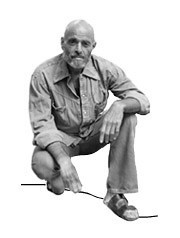 Shel Silverstein was born on this day 82 years ago, although he shuffled off this mortal coil thirteen years ago. I admire Shel and the life he chose to lead. It is not a path I would have chosen myself, but I give him credit for an exceptionally interesting in life.
Shel Silverstein was born on this day 82 years ago, although he shuffled off this mortal coil thirteen years ago. I admire Shel and the life he chose to lead. It is not a path I would have chosen myself, but I give him credit for an exceptionally interesting in life.Shel famously said that as a kid he would have liked to be good at sports and popular with girls, but since he was neither he turned to drawing and writing. After he was drafted into the army, he turned his artistic skills to drawing slightly off-kilter comics for Pacific Stars and Stripes magazine. Not surprisingly, he was nearly court-martialed over one of his drawings.
Two years later, done with his Korean War service, he returned home to Chicago, looking for work. He walked into the offices of Hugh Hefner's new enterprise: Playboy Magazine. He walked out with a job and then turned that into a better job, working as a "travel columnist" for playboy. He traveled the world, writing and drawing comics about his experiences. That sounds like a pretty good gig for a young single man.
Shel was an unlikely success story in children's publishing. He didn't like children's books and felt they were condescending to kids. So, in 1960, Shel wrote a little book of his own called The Giving Tree, which started with the line "Once there was a tree... and she loved a little boy." It took him four years to find a publisher that would put it out. It didn't sell much early on, but started to spread through word of mouth and became a bestseller. Today, an author with that kind of success would have a series of kids books out within months. Not Shel. He released the immortal Uncle Shelby's Zoo shortly thereafter, but didn't release his next major kids book for another ten years, when he released Where the Sidewalk Ends. It took him another twenty years to release A Light in the Attic and Falling Up, all of which were big books in my house with my little girls.
That would be enough of a career for most any creative soul, but not Shel Silverstein. Shel also dabbled a bit in music, writing A Boy Named Sue for Johnny Cash, and The Unicorn for The Irish Rovers. He also wrote many of the best-known songs for one of my favorite bands - Dr. Hook and The Medicine Show - like The Cover of the Rolling Stone and Sylvia's Mother, not to mention Freakin' at the Freakers Ball.
Shel was also generous to a fault. If anyone around him contributed even one line to a song he was writing, he insisted on sharing the songwriting credit equally.
I shouldn't forget that he also wrote more than 100 plays. Oh, and he lived, off and on, at The Playboy Mansion, both East and West. He also won an Academy Award and was inducted into the Nashville Songwriter's Hall of Fame.
The term "renaissance man" is thrown around a lot, but it applied to Shel Silverstein. He had a reputation as being difficult to work with, but I think he just didn't feel as compassionate as he could have for people that didn't have his genius.
In the beginning of this post, I mentioned that I wouldn't have chosen his life's path. I said that because, for all his success and all his friends, I feel like he had a core of loneliness and restlessness that nothing ever filled. More than anything else, I think he wanted to see what was over the next horizon. He went over the last big horizon more than ten years ago, but I still think of him, his poems and his songs often.
And, I often think of these words, from Where the Sidewalk Ends:
"Yes we'll walk with a walk that is measured and slow,
And we'll go where the white-chalk arrows go,
For the children, they mark, and the children, they know
The place where the sidewalk ends."
Published on September 25, 2012 18:42
September 24, 2012
Interview with a hostage
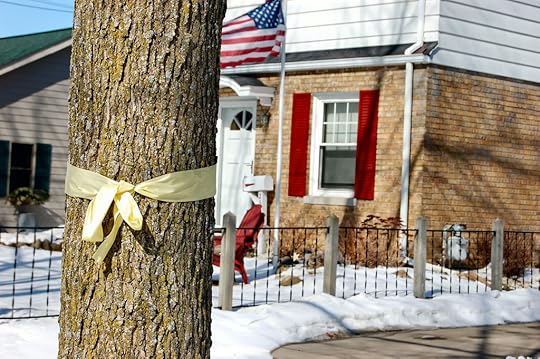 Thirty two years ago I was a talk show producer for The Laura Hall Show on KAYO AM in Seattle. Aside from my salary ($700/month) it was my dream job. I was only required to be at the station for five hours a day, but I loved the job so much I worked twelve hours most days.
Thirty two years ago I was a talk show producer for The Laura Hall Show on KAYO AM in Seattle. Aside from my salary ($700/month) it was my dream job. I was only required to be at the station for five hours a day, but I loved the job so much I worked twelve hours most days.Being a talk show producer meant that I had two essential jobs: book the guests and screen the nutjobs who wanted to get on the air every night. Every Monday, Laura and I would sit down and she would tell me who she wanted me to book for the upcoming weeks.
Starting in August of 1980, Laura started telling me to set up an interview with "one of the hostages being held by the students in Iran." It got to be a running joke between us. The hostages had been seized the previous November and there had been no media contact with them since then.
I like to think that anything is possible, and the impossible just takes a little longer. So, I started working on setting up that interview. Of course, I ran into one roadblock and dead end after another. After three months of fruitless calls, I called another in a long series of numbers that turned out to be a wrong number. This wrong number turned out to be a business. A bar, in fact. When I started to speak English instead of Farsi, the phone got handed off to a gentleman with a strong British accent. I told him the story of how I had gotten the wrong number and who I was looking for. He told me that he was a reporter from England, and that he thought he had a number that would ring in to where the hostages were held. For no good reason that I can think of, he dug around in his pockets, found the number and gave it to me.
My fingers trembled as I dialed that number, sure that my destiny was about to unfold. The phone rang, someone answered in a language I didn't understand, and when I spoke they immediately hung up the phone. Over the next few weeks, I dialed that number every night we were on the air, but never got farther than speaking one sentence before they hung up.
One night I got the bright idea to try a little subterfuge. As soon as I heard the voice on the other end of the line, I said "Hello, this is the overseas operator, I have a Person to Person call for Mr. Bruce Laingen." For those of you born after 1980, a Person to Person call was a more expensive type of call placed with operator assistance where you didn't get charged unless you reached the person you were calling.
Instead of just hanging up like they had every other night, I heard the phone set down with a clunk. I sat at my desk, straining to hear anything, hoping to get anything that I might report on the hostages. Long distance calls from America to Iran were very expensive in 1980, so I could feel the meter running as I sat there on virtual hold.
After five minutes or so of silence, the phone was picked up and I heard a tired-sounding voice on the other end say "Hello?" I was stunned, but not silent.
"Is this Bruce Laingen, the chargé d'affaires of the American Embassy?"
"Yes?"
My heart nearly beat out of my chest. Tedd Koppel and ABC's Nightline was devoting half an hour every night to the hostage crisis, and I had the head diplomat ON THE PHONE.
"Mr. Laingen, this is Shawn Inmon with radio station KAYO in Seattle Washington. Would you be willing to come on the air with us right now?"
"Oh, I wouldn't be comfortable doing that. The negotiations for our release are at a critical juncture, and I don't want to do anything that would endanger that."
"I understand that Mr. Laingen, and we wouldn't want to do anything that would endanger you in any way. At the same time, people all over America are worried about you and praying for you. It would mean so much to them if you could just come on the air and say 'This is Bruce Laingen and the sun is shining in Tehran today."
There was a long pause on the other end, then "OK. I'll come on the air with you."
I was exultant, but realized that the only way I could connect with Laura in the other room was to put the call on hold. I said a quick prayer of my own that our hold system wouldn't accidentally hang up. I pushed through the swinging door into the studio so hard it slammed back and bloodied my nose. I didn't even notice. I ran up to the control board, hung up on the caller Laura was talking to on the air, put a 30 second PSA into the cart machine and hit Play.
"I have Bruce Laingen on the line and he's agreed to talk to us on the air. You have 20 seconds to prepare for the biggest interview of your life."
I realized I had done everything I could, and it was all in Laura's hands now. I walked slowly back to my desk and slumped down in my chair when a stray thought occurred to me: was anyone recording this for posterity? I ran to the newsroom around the corner and saw the reel to reel tape machine slowly turning, recording the conversation. The newsman on duty that night looked at me with his jaw hanging open a little bit.
That short, two and a half minute interview marked the only public words spoken by any of the 52 hostages during their 444 day captivity. Laura did a wonderful job with the interview with almost no preparation. She was calm and cool and got everything she could out of her time with Mr. Laingen.
My life for the next 48 hours was a blur. I was contacted by every major news service for an interview, including ABC, NBC, CBS, The Associated Press, United Press International, and the BBC. I was interviewed by two very serious men in dark suits and sunglasses who wanted to know how I got the number that reached the hostages. I don't think they believed me when I told them a half-drunk British journalist gave it to me. President-elect Ronald Reagan's Press Secretary James Brady called to congratulate me. The biggest deal of all was that Walter Cronkite said my name on the CBS Evening News when my Mom was listening.
Laura and I had some other good moments at KAYO - I located and set up an interview with Abby Hoffman while he was still on the run from the law - but nothing approached the feeding frenzy of the hostage interview. If everyone really does get to be famous for fifteen minutes, those were mine.
If you'd like to hear the same story from the other end of the phone line, Bruce Laingen wrote about it in his autobiography Yellow Ribbon: The Secret Journal of Bruce Laingen.
That's not quite the end of the story, though. Twenty six years after that interview, I sent Mr. Laingen a letter. I felt I owed him an apology. In my youthful enthusiasm I was so intent on procuring the interview that I didn't ever stop to think about the possible human cost. In my letter I apologized for that thoughtlessness.
In his return letter, Mr. Laingen was very kind, telling me that no apology was necessary and that he knew exactly what he was doing when he came on our airwaves. Even twenty six year later, it felt nice to be able to let go of that small guilt I had carried around.
Published on September 24, 2012 21:03



